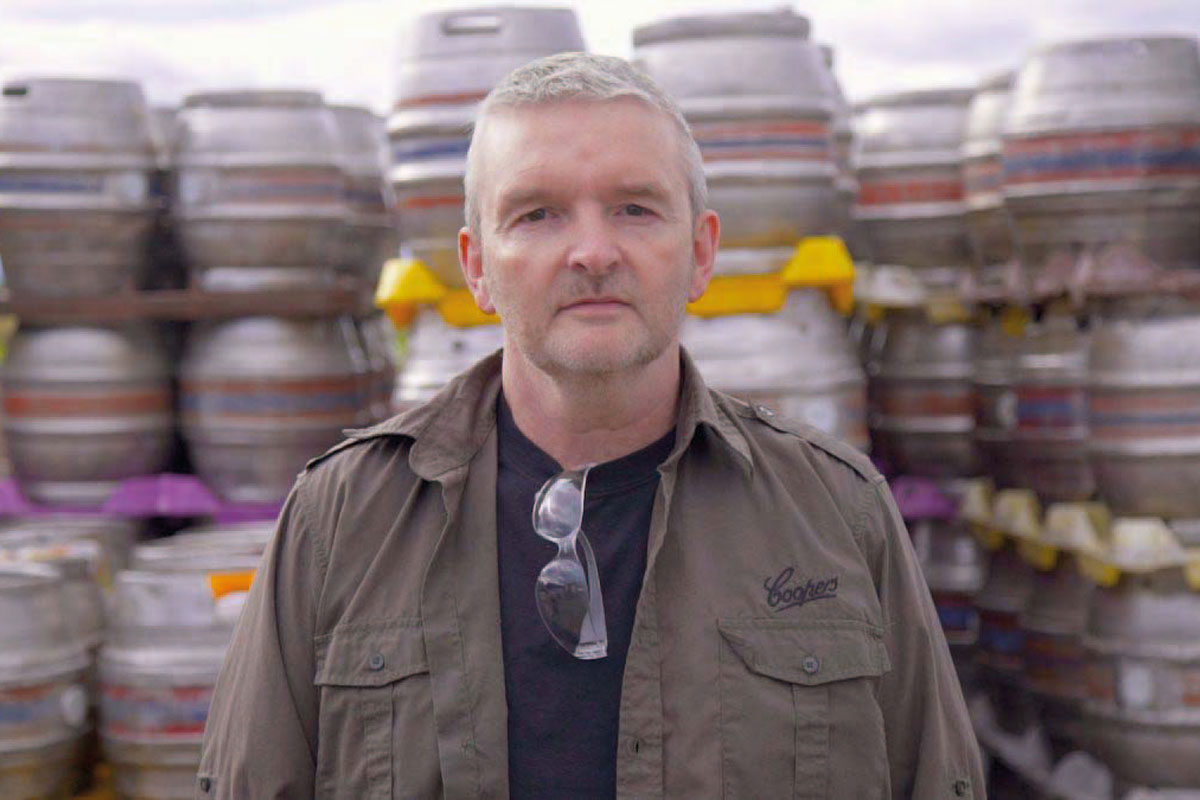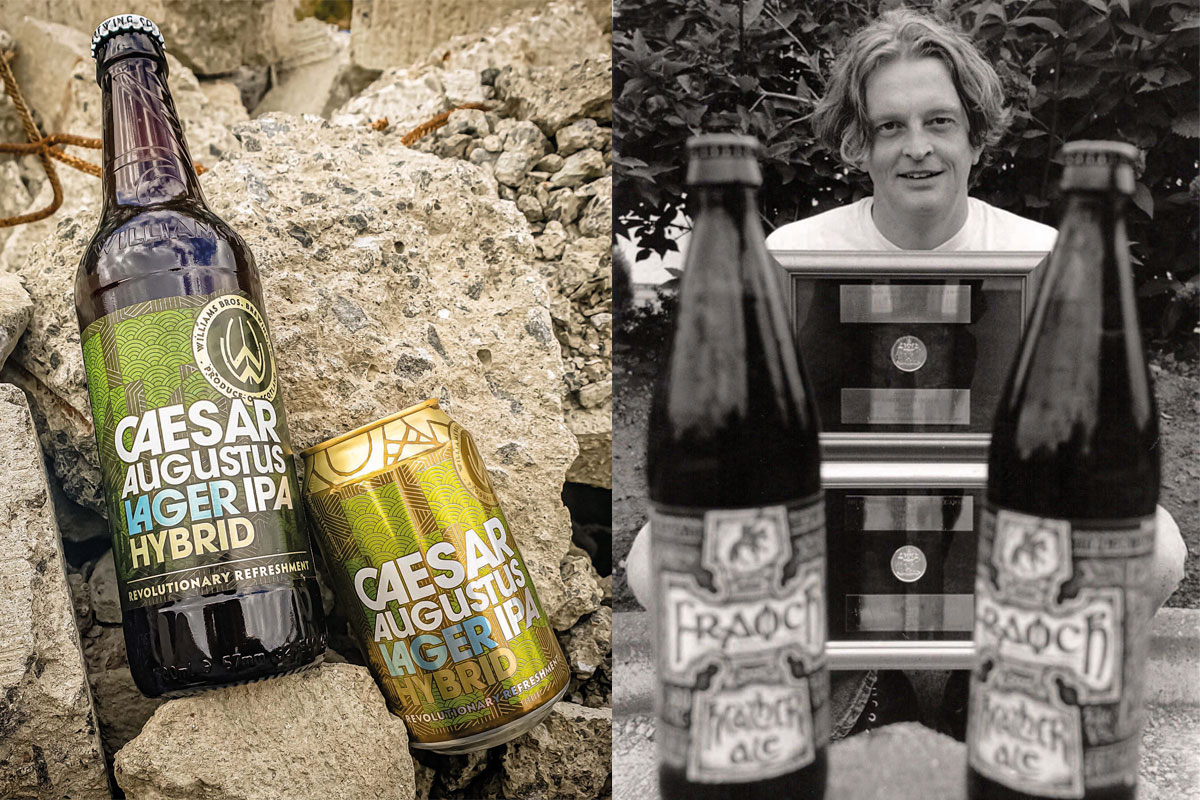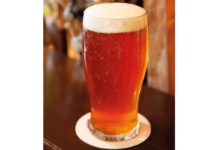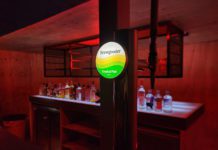Award-winning brewer is still going strong after three decades of innovation

THERE’S a good argument that Williams Bros, the Alloa crafter brewer behind Fraoch, Joker IPA and Caesar Augustus among others, has been ahead of the curve since day one, writes Dave Hunter.
Long before there was a trend for locally-sourced products with an interesting story, they produced a heather ale that has its roots in a 2000 year-old brewing practice. And long before anyone in the UK was using the term ‘craft beer’ they were crafting beers from gooseberries and seaweed.
Looking back at the early days of the company Scott Williams – who founded the business with brother Bruce in the early 1990s – told SLTN the company’s early business strategy boiled down to one key factor.
“I think there was a lot of belligerence, to be honest,” he said.
“We had four ales to start with – Fraoch, Grozit, Alba and Ebulum. They all had a historical precedence going back at least to medieval times, when everything was being locally harvested and you just picked whatever was around.
“And then we literally just knocked on doors. And because there was nobody else really doing it, if you go in and say ‘hey, I’m making this beer out of heather, there’s one made out of elderberries and whathaveyou’, restaurants and licensed cafés and stuff like that were like ‘yeah, of course we’ll try it’.
“It was indigenous and the tourists were looking for interesting stuff.”
Subsequently the company’s early listings tended to be in tourist locations. Some of them, such as the Clachaig Inn in Glencoe, are still loyal customers today.
“I used to drive up to Skye every week in the van and just knock on doors and say ‘would you take this on sale or return?’ And then you build up a route of established customers. It was wonderful,” recalled Scott.
Having grown out of the Williams family’s homebrew business, the company – originally called Heather Ale Ltd – spent the 1990s evolving. In the early days its beers were brewed in a tiny brewery in Taynuilt. Looking to expand, the brothers shifted production first to the Maclay brewery in Alloa and then a purpose-built facility in Strathaven.
By the late ’90s Maclay, which was still bottling the Williams beers, was pulling out of the brewing business and the Williams brothers teamed with several other entrepreneurs to take over the site, operating it as Forth Brewery.
“It was a brewery and a bottling line,” said Scott.
“But it just didn’t work. It was too much, too soon. We ended up running pickles and curry sauce and shit like that through our bottling line just to make use of it. And that business pretty much died.
“So we had the choice of getting stuff contract brewed somewhere else or take over the site. So we did. We took over the site and the employees, but we knew that just having brands like Fraoch wouldn’t be enough. So we created Williams Bros pretty much straight away at that point.”
With the larger capacity came a larger range of beers, with staples like Joker IPA, Birds & Bees and Seven Giraffes all entering the market in the early years of the new century. There’s been no shortage of new launches ever since.
And formats also expanded, with cask and bottle being joined by keg and cans.
Twenty years down the road and Williams continues to be one of Scotland’s most innovative and award-winning breweries.
Late last year Williams Bros was named Brewery of the Year at the Scottish Beer Awards, with the company also taking the Best Amber or Dark Ale (Pavlov’s Dog), Best IPA (Tin Man), Best Lager (Caesar Augustus) and Best Stout or Porter (Chokka Blokka) titles.
Not bad for a business that’s been in the game for three decades.
The company’s sales split is roughly 70/30 in terms of off-trade to on-trade, with customers ranging from Mitchells & Butlers, Wetherspoon and Caledonian Heritable to smaller independents.
Scott said one of the reasons the company has flourished has been balancing its business between the larger and smaller operators, with products priced ‘really reasonably’ regardless of which business is buying them.
“We’ve been really careful, and we’ve had really good distribution with small retailers as well as big retailers. And that’s worked,” he said.
Looking to the year ahead, Scott acknowledged that 2023 is likely to be as challenging for producers as it is for operators, with cost pressures squeezing businesses from all sides.
“Our malted barley, which is the base of all our beers, has gone up by 51.8%,” said Scott. “Our energy cost has gone up by 373%. Glass has gone up by, let’s say, 17%. Cans by 17%. Cardboard has been death by a thousand cuts because every invoice you get says it’s gone up by 7%, 9%. Compounded it’s about 35%.
“It’s profound, the difference. And on top of that, because of the cost of living crisis, you’ve got to put your salaries up.
“So when you add all that together you think that for us to stay in business we need to add 14% on to the net price of all our products. It’s that cut and dry. If you don’t you lose money and you go out of business.”
And the Scottish Government’s Deposit Return Scheme – due to come into force in August – will add further complications.
“I think the only hope we have in the horizon is they’re talking about a de minimis possibility, where small producers, certainly for a period of time – might be a year, might be two years or 18 months – would be exempt from the scheme,” said Scott.
“Say there’s five companies who produce 95% of packaging and then the other 3000 companies produce the other 5%. So it would work a lot better for everybody if they focus on these guys first, make all these learnings, and then gradually absorb you all into it.”
But as you might expect from someone that’s been at the forefront of craft brewing for decades, he had a much simpler way of summing it up.
“It’s going to be a pain in the arse for everybody,” he said.
























